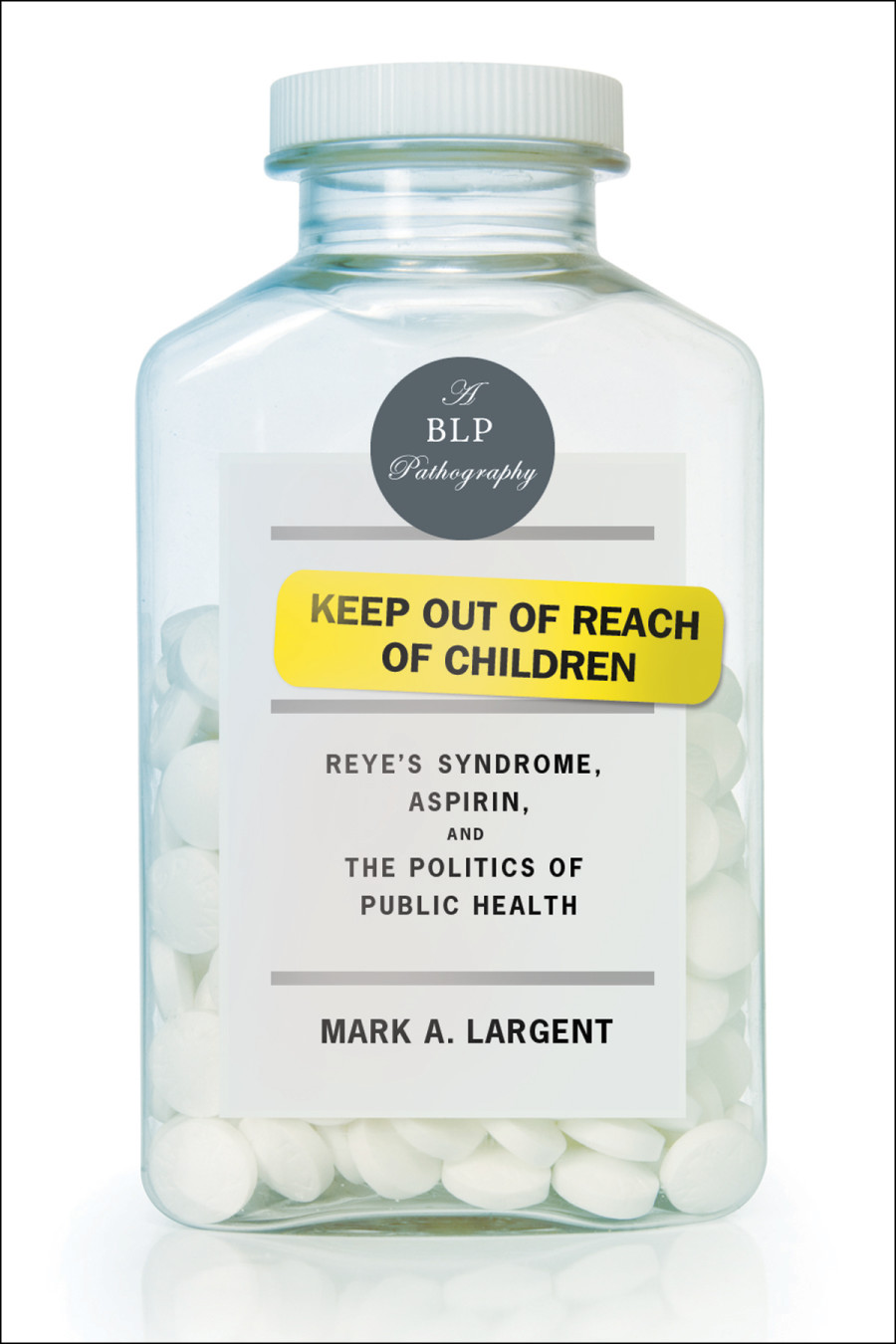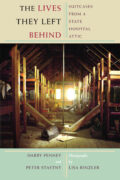“Largent’s engaging and honest account explores how medical mysteries are shaped by prevailing narratives about venal drug companies, heroic investigators, and Johnny-come-lately politicians.”
Helen Epstein, author of The Invisible Cure
-
on
“A fascinating history of a public health crisis. Compellingly written and insightful, Keep Out of Reach of Children traces the discovery of Reye’s syndrome, research into its causes, industry’s efforts to avoid warning labels on one suspected cause, aspirin, and the feared disease’s sudden disappearance. Largent’s empathy is with the myriad children and parents harmed by the disease, while he challenges the triumphalist view that labeling solved the crisis.”
Erik M. Conway, coauthor of Merchants of Doubt
-
on
“In this fascinating account, Reye’s syndrome–survivor Largent weaves his own tale throughout the bigger story about this puzzling medical condition. . . . This thought-provoking work certainly meets the goal of the publisher’s Pathologies Series to chart ‘the impact of disease on human individuals and populations from the biological, historical, and cultural perspectives.’”
Booklist
( link)-
on
“A well-researched history of Reye’s syndrome that explores how science, medicine and politics interact. . . . As Largent examines the dispute over whether to require warning labels on bottles of aspirin, he also scrutinizes the actions and interactions—some might say the machinations—of pharmaceutical companies, consumer rights groups, epidemiologists, public health officials, courts and the U.S. Congress. . . . A revealing work.”
Kirkus Reviews
( link)-
on
“An absorbing study of the interrelationships of science, business, politics, and public health. . . . Both professionals and lay readers interested in science will enjoy this work.”
Library Journal
-
on
“Meticulous. . . . If one thing becomes clear in Largent’s narrative, it’s that the regulatory process itself is disordered.”
Publishers Weekly
( link)-
on
“Far more than a story of parental interests or threats to children’s health. . . . Recommend[ed] for any concerned with public health management, research studies, aspirin and its management, or the processes of intervention, protection, and research that dictate the choices of public health as a whole.”
Midwest Book Review/California Bookwatch
( link)-
on
“Explicates the difficulties of epidemiology and of turning their findings into effective, useful action in the face of political and economic resistance. . . . If you are sometimes bewildered by the current struggle for science to make a dent against ignorance, it’s all here in Keep Out of Reach of Children.”
Portland Book Review
( link)-
on
Bellevue Literary Press Pathographies series
Reye’s syndrome, identified in 1963, was a debilitating, rare condition that typically afflicted healthy children just emerging from the flu or other minor illnesses. It began with vomiting, followed by confusion, coma, and in 50 percent of all cases, death. Survivors were often left with permanent liver or brain damage. Desperate, terrorized parents and doctors pursued dramatic, often ineffectual treatments. For over fifteen years, many inconclusive theories were posited as to its causes. The Centers for Disease Control dispatched its Epidemic Intelligence Service to investigate, culminating in a study that suggested a link to aspirin. Congress held hearings at which parents, researchers, and pharmaceutical executives testified. The result was a warning to parents and doctors to avoid pediatric use of aspirin, leading to the widespread substitution of alternative fever and pain reducers. But before a true cause was definitively established, Reye’s syndrome simply vanished.
A harrowing medical mystery, Keep Out of Reach of Children is the first and only book to chart the history of Reye’s syndrome and reveal the confluence of scientific and social forces that determined the public health policy response, for better or for ill.












